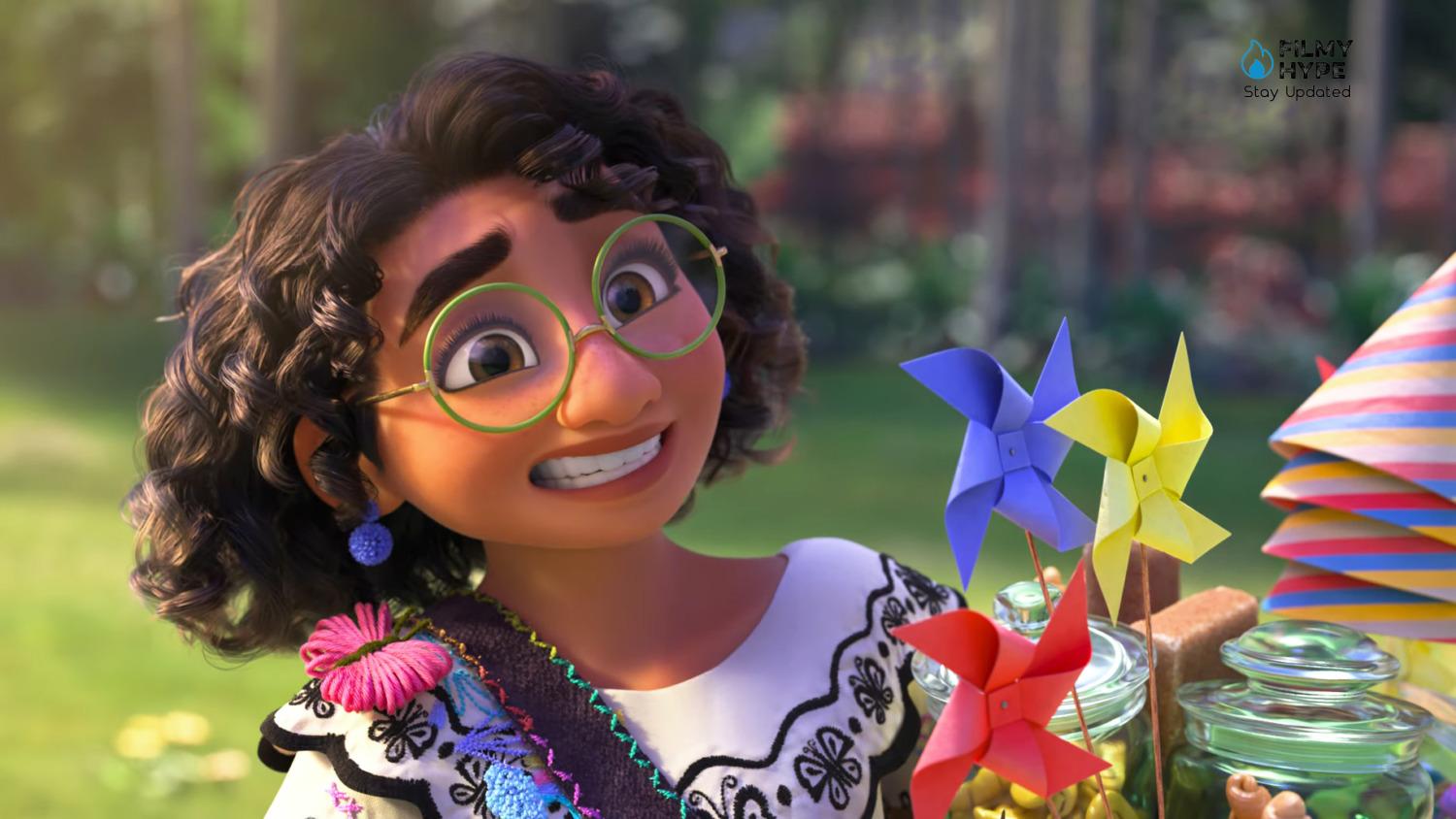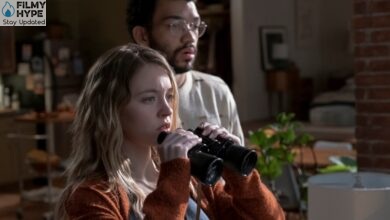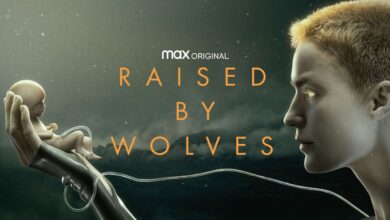Encanto: The Explanation and Meaning of 8 Songs!!!
While many of the recent animated films have moved away from the musical, Disney’s strongest works continue to be those with songs at their core. Encanto is proof of this because no film has managed to be so successful since Frozen (2013) with its songs. The fact may not surprise me if we consider that, in the case of Encanto, Lin-Manuel Miranda (author of Hamilton) composed the songs. And if his name alone weren’t enough to guarantee musical success, here we find him flanked by the composer Germaine Franco, who made us cry so much in Coco (2017).

Encanto: The Explanation of The Songs
Together they return to excite us with an Oscar-winning soundtrack and a magnetic cast that gives voice to melodies in which Colombian sounds intertwine and build an authentic cultural journey in a world of fiction. The cast reunited for the first time on stage at the Hollywood Bowl for a concert event available on Disney+ starting December 28, offering subscribers a front-row seat to an unprecedented event. A good opportunity to retrace the story of Mirabel and her family through the eight songs from the film, performed on the Hollywood stage with an orchestra of 80 people, 50 dancers and spectacular special effects.
The Family Madrigal
The first song of Encanto is a broad and canonical introduction to the characters, especially the magical Madrigal family with their magical abilities. The narration is carried on by the protagonist Mirabel, put under pressure by a small group of children to introduce her family members: she tells us about her aunt Pepa, who influences the weather with her mood; of her mother Julieta, who heals people with food cooked by her; of sisters Louisa, gifted with supernatural strength, and Isabela, who makes everything perfect with the flowers she creates; of her cousin Dolores, who can hear even the faintest whispers of her from afar and of her cook Camilo, who can change shape and appearance at will. She tries to mention something about Uncle Bruno, but it’s clear that it’s not yet the time to talk about him.
From the very first notes, however, he is keen to introduce a fundamental character for the plot: the house, which in the development of the story of Encanto has become much more than a place, but an active, dynamic and always present character. The clear metaphor of the family is that if its members are in harmony with each other then the house will be solid, but with the advent of the first problems, it will be the first to show cracks. A living character that allows the construction of comic moments but is also exciting and engaging. Finally, there is Mirabel. She has no power, no talent. She reveals it to us, anti-climatically Dolores, by abruptly breaking the expectation of those children curious to know it, of us spectators and the melodic ascent at the same time. After all, what Miranda does in Encanto is a continuous building and deconstructing,
Waiting On A Miracle
On more than a few occasions, Lin-Manuel Miranda has stated that this was the hardest song to write, like all the “I want/I wish songs” (that is, those songs in which the protagonists express in music the ardent desire to realize their specific dream). In this case, the music is that of a Colombian waltz, on whose notes a fantastic Stephanie Beatriz (Brooklyn Nine-Nine) sings in the role of Mirabel. A melody with a different rhythmic accent than the others and which Miranda uses to tell the protagonist’s dream of truly feeling part of her family. If in an early version of the story she was desperately trying to find her own talent, the screenwriters (Jared Bush, Charise Castro Smith, Lin-Manuel Miranda) preferred to show us a Mirabel who had already overcome this desire but was eager to be seen and to make his family is proud despite his absence.
Surface Pressure
The catchiest song of the eight is sung by Louisa, Mirabel’s older sister, who with the voice of Jessica Darrow sings to us about the weight of family expectations. She tells us about her struggle with the sense of responsibility that comes from being the “strong one” in the family: she moves bridges, raises churches and rivers and takes care of her family members and everyone in the village without anyone caring about do the same with her or simply thank her. Without anyone understanding that she too, despite the strength of a colossus, has weaknesses. This makes her nervous, evidenced by the hilarious twitch in her eye.
Louisa tells us how she has internalized this emotional stress and Miranda’s musical composition in this case is the most appropriate, because she manages to put the character’s situation into music through skillful use of the rhythmic accent: she does so by alternating rhythmic to a tighter one, often abruptly interrupted by more melodic moments. As in the first song, here she proposes and takes to the extreme consequences of her constructing and deconstructing a melody that never really explodes, just like Louisa who always tries to hold back and keep calm and in control. However, there are moments in which she needs to breathe and free herself of this weight, rendered in music by the “Woah”.
We Don’t Talk About Brun
Undoubtedly the film’s greatest musical success. A polyphonic salsa piece performed by an ensemble including Carolina Gaitán, Mauro Castillo, Adassa, Rhenzy Feliz, Diane Guerrero and Stephanie Beatriz. When Mirabel asks Pepa about her uncle Bruno about her, her aunt refuses to talk about it until her husband Félix starts spilling the beans about her. So, with different characters’ voices beautifully layered as each recount what they know about the family’s mysterious black sheep, the song describes how Bruno’s ability to see the future caused him problems because many saw his prophecies as curses.
Though the song moves through different musical styles over its run (from pop to hip-hop), Miranda foregrounds Cuban piano sounds and a cha-cha-cha vibe accentuated by the chorus (You don’t name yourself Bruno no-no-no). The Latin-pop-inspired backing track with Cuban folklore bases draws inspiration from the traditional Tito Puente, Mario Bauza or Chucho Valdés, or the more modern Arturo O’Farrill. A base made for dancing, but which Lin-Manuel Miranda makes it more current and above all accessible to people from all over the world with elements of hip-hop. Thanks to this combination of tradition and innovation, in January 2022 it became Disney’s biggest hit since 1995, reaching position no 4 on the Billboard Top 100.
What Else Can I Do?
Unlike Louisa, Mirabel has an adversarial relationship with her sister Isabela. A rivalry fueled by the fact that the latter has a magical gift that always makes her perfect in everyone’s eyes, while our protagonist constantly feels the disappointment of her family. Imagine her joy after discovering that he would have to speak to her to save her Encanto. Mirabel tries to apologize, but the conversation doesn’t quite go as planned and, in a fit of rage, Isabela unexpectedly grows a cactus among her rows of roses. As it had been for Mirabel with “A Miracle” and for Louisa with “ Surface Pressure“, with this song she too finally frees herself from her burden: that of always being perfect, in any case.
Diane Guerrero (Orange is the New Black), an American actress of Colombian descent, and Diana Del Bufalo give voice to Isabela’s outburst and finally manage to create all the plants she wants, whether they are carnivorous or ficus that strangles. Accompanying it are notes different from the others, for which Miranda drew inspiration from the Spanish rock of the 90s. An electric guitar leads Isabela’s singing rebellion, who in “We Don’t Talk About Brun” was presented to us with the typical voice of the Disney Princesses (acute, soft, sweet), but who here finally feels free to let out the true timbre of her.
Dos Oruguitas
A song that plays on the strings of the guitar and the heart. Sebastián Yatra sings the poignant song as Abuela tells Mirabel the story of how she lost her husband and, in her deepest pain, she received the miracle she had always been trying to protect until then. In Latin America the idea of magic among ordinary things is widespread, often symbolized by the notion of “Encanto“: sacred lands that seem magical, and miraculous, and with which the inhabitants coexist without questioning their existence. In this spirit, the filmmakers have created a house and a city that magically emerge from the ground as an answer to a prayer in a moment of despair.
In literature almost all these enchantments are born of pain, so the earth gives Alma a miracle when she begs for a way to escape violence. The song, therefore, represents the emotional climax of Encanto and inaugurates the long-awaited reconciliation between Abuela Alma and Mirabel in a splendid riot of symbolic yellow butterflies, a tribute to the Colombian author Gabriel Garcia Marquez (One Hundred Years of Solitude). The song is gentle, rooted in more mellow acoustic sounds reminiscent of the folk traditions of Colombia and other parts of South America.
All of You
An interesting element of Lin-Manuel Miranda’s works is that he tends to assign instrumental/vocal motifs and themes to people, events and places. A truly effective technique for building a story, which he used a lot in Hamilton and which he also repurposes in Encanto. It becomes clear in the final song, the culmination of all the events that happened, which gives us the impression that we are listening to the entire soundtrack again in a few minutes.
Each character proposes his own theme but with a decrease in percussion and rhythm: this is just a moment of sweetness to show Mirabel the recognition she has been looking for for years and which she has finally obtained from her family. An epilogue that suggests that perhaps she too had a gift: that of empathy, often underestimated, but the only one capable of saving families and relationships.
Colombia
The last song of Encanto, staged when the Madrigals discover that their miracle is back, that it hasn’t really run out, and in the end credits. Energetic, fun and uplifting, she probably best embodies the cultural spirit of Colombia and follows the Vallenato rhythm, traditional Colombian folklore characterized by the use of the accordion. To interpret it is the Colombian singer-songwriter Carlos Vives, a perfect accompaniment for the satisfying finale of this Disney musical signed by Lin-Manuel Miranda. A love letter to the South American country.






